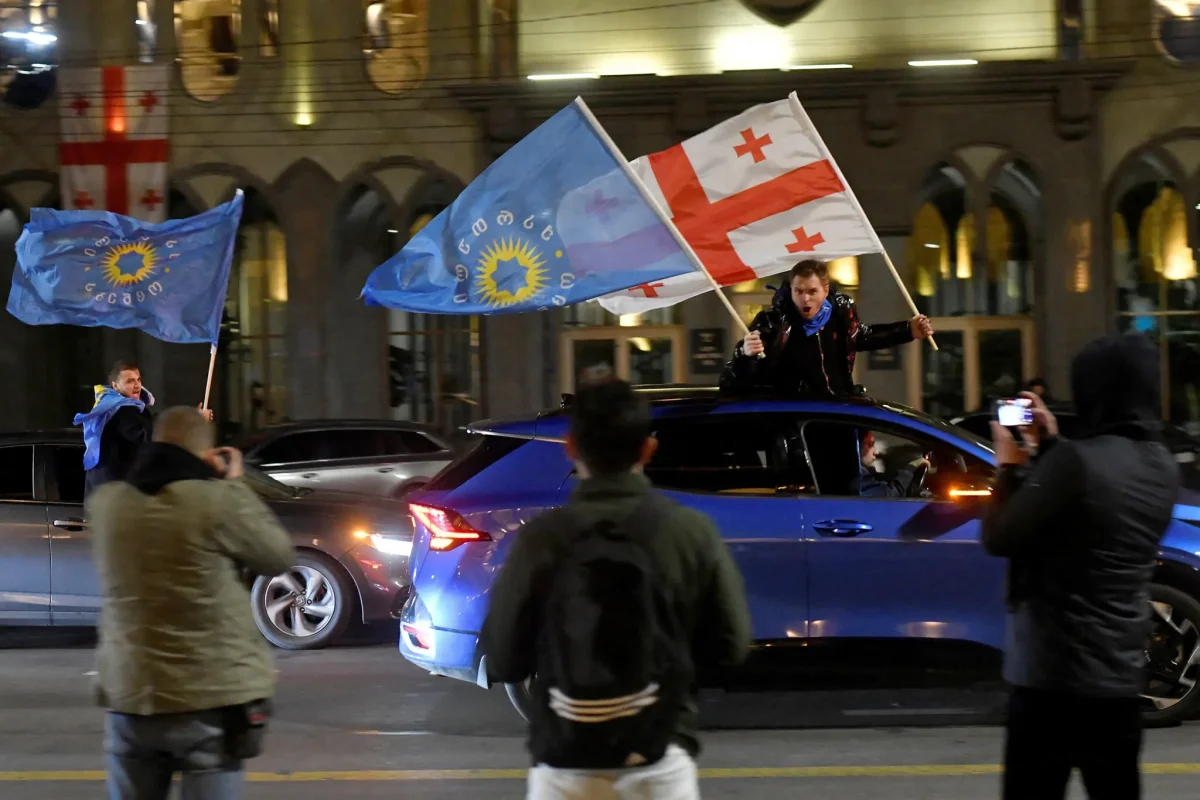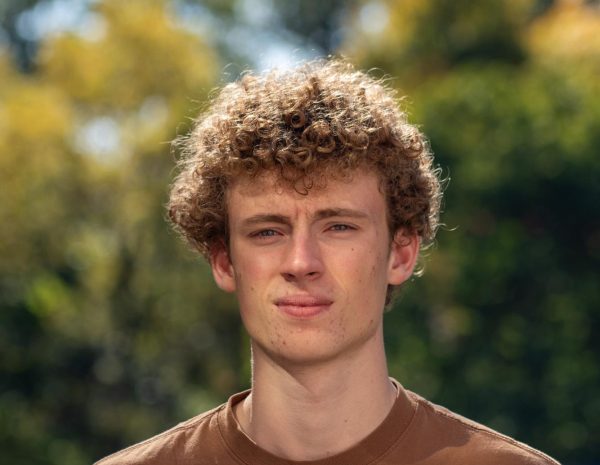The election
The ruling party in Georgia, a strategically important country at the centre of the Caucasus region, won a new mandate in parliamentary elections on Oct. 26.
The Georgian Dream party won almost 54 percent of the vote, according to the Election Administration of Georgia. Despite having won the 2012 elections on a pro-European Union (EU) agenda, Georgian Dream have increasingly tilted their policy toward Russia and China, and away from the West.
The October vote saw the opposition split into four main political forces, and claimed victory based on projections made by sympathetic TV channels. Following the Election Administration’s official result that Georgian Dream had won again, the opposition parties claimed the election had been rigged. This was backed up by Georgia’s president, Salome Zourabichvili.“[The election was] a total falsification, a total stealing of votes,” she said.
These elections were the first held in Georgia since the EU granted the country candidate status in 2023. However, the accession process has been unofficially halted since June 2024, due to the introduction of a Russian-style “Foreign Agents Law’, which prompted backlash from the EU, fearing it could harm Georgia’s democratic development on its path to EU candidacy.
Alleged irregularities during the vote included reports of pressure on voters, particularly on public sector employees, and a “polarised media environment with the adaptation of private outlets for political propaganda,” the Organisation for Security and Cooperation in Europe (OSCE) , who sent an election observation mission to the country.
Additionally, in the days after the election, videos on social media showed what appeared to be an election official stuffing a ballot box with multiple ballots.
The International Society for Fair Elections and Democracy (ISFED), a key Georgian election watchdog, also documented ballot stuffing, multiple voting, voter bribery and expulsion of observers from polling stations.
Due to the combination of the aforementioned violations, “The results cannot reflect the will of the voters,” ISFED said.
Politics
The second largest opposition party in the election was the United National Movement (UNM), with just over 10% of the vote. UNM is closely associated with Mikheil Saakashvili, the former president of Georgia. Saakashvili is currently serving a six-year sentence for abuse of power, a conviction he and his supporters say is politically motivated.
Graham Wall, a British citizen based in Georgia since the 1990s, believes that Saakashvili’s controversial legacy affects UNM’s ability to win over some groups of voters.
“The UNM is closely associated with Saakashvili’s old government,” Wall said. “Whilst they did a lot of good things, they went off the rails a bit 12 years ago, and there’s a lot of people who will never vote for them, they carry a lot of baggage.”
In August, Georgian Dream promised to ban the UNM if they won the elections in October. With their victory in October, along with a constitutional majority, the UNM’s future in the country is uncertain.
Furthermore, The OSCE’s preliminary report also stated that there was a discrepancy in the amount of resources allocated to candidates. “A significant imbalance in financial resources and advantage of incumbency contributed to an already uneven playing field,” the OSCE said. This is because of Georgian Dream’s domestic dominance, largely due to the influence of Bidzina Ivanishvili, officially the Party’s “Honorary Chairman” but also a powerful oligarch and former Prime Minister.
Ivanishvili made his wealth in Russia following the fall of the Soviet Union, and despite officially resigning all political positions in 2013, he is widely viewed as the de facto leader of Georgian Dream. He is regarded by many as the most powerful figure in the country, with a net worth equivalent to a quarter of Georgia’s entire GDP in 2023.
Wall believes that Ivanishvili wields control of much of Georgia’s business and political scene.
“There are a whole range of businesses in Georgia which Bidzina [Ivanishvili] directly or indirectly has business interests in,” Wall said. “He runs his political party like a business. I can’t see how you could go high up in that party without him directly, or indirectly, approving you to do so.”
Recent Protests
On Thursday, Nov. 28, Prime Minister Irakli Kobakhidze said that the country was putting the process of accession to the European Union on hold until 2028. He also announced that Georgia would refuse any further financial assistance from the EU, which has provided the country with over $500 million since 2019.
The announcement prompted thousands of protesters to pour into the streets of central Tbilisi, blocking a long stretch of the capital’s main thoroughfare.
Videos on social media show protesters throwing stones, shining green laser pointers and launching fireworks at police officers. Many police officers jostled and beat protesters and journalists. One video showed opposition leader Nika Gvaramina being violently detained and rendered unconscious, raising concerns about police brutality.

A local branch of Transparency International, a human rights watchdog, said authorities had made unlawful arrests and deliberately targeted journalists covering the protests. “[Authorities used] “unprecedented repressive measures against the peaceful demonstrators,” Transparency International said.
Wall claims the current protests would have to ramp up in intensity in the capital, or spread to more rural areas where Georgian Dream typically has more support, to become a tipping point.
“Until that happens and/or the opposition gets together properly, I think Georgian Dream will just [continue] as they are,” he said.
What’s at stake
Since 2006, Georgia has been on the path towards EU membership. This process is supported by almost 80% of Georgians, according to a poll released by the National Democratic Institute, a nonprofit funded by the US and other Western governments.
Despite this, many worry that closer ties with the EU and US would lead to retaliation by Russia, who seized control of the Georgian regions of Abkhazia and South Ossetia in the five-day Russo-Georgian War in 2008. Many point to events in Ukraine from a decade ago, when Russia annexed Crimea in 2014 after the “Euromaidan” protests, in which Ukranians took to the streets to call for closer alignment with the EU.
Many rural Georgians, however, remain nostalgic for the Soviet past, as Wall explains:
“You’ve got a split between students in Tbilisi and the people who live in the villages and towns, they’re all proud to be Georgians, and they’re all mostly western oriented, but there’s quite a bit of difference in their mentality and values,” Wall said.
By Oliver Dashwood



































































